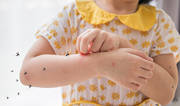
Researchers explore novel therapies to stall severe dengue as vaccine development gains momentum
Posted 24 May 2024 | Source: https://www.pharmabiz.com/
The burden of dengue in India, with an estimated 33 million clinically apparent cases annually calls for continuous surveillance and proactive public health interventions including vaccines to mitigate its impact.
Dengue management is undergoing a revolution with innovative tools emerging alongside traditional methods. While a single, broadly protective vaccine remains elusive, tetravalent vaccines offering some protection against all four dengue serotypes are being implemented. Additionally, researchers are exploring novel therapies targeting specific stages of the viral infection to prevent severe dengue, said Dr Anantha Padmanabha, senior consultant, internal medicine, Fortis Hospital.
Approaches like using Wolbachia, a bacteria that reduces mosquitoes' ability to transmit dengue, and deploying genetically modified mosquitoes resistant to the virus are showing promise. These efforts are complemented by improved diagnostic tools for early detection and integrated vector management strategies. A multi-pronged approach, encompassing vaccines, therapies, genetic manipulation, and improved vector control, holds immense potential to significantly reduce the global dengue burden, said Dr Padmanabha.
Dr Swati Rajagopal, consultant, Infectious Disease & Travel Medicine, Aster CMI Hospital noted, In India, vaccines might be available by mid-2026 as Indian Immunological Limited has completed the first phase of trials to determine safety. The Serum Institute of India is also developing a vaccine, having completed initial trials in Australia, with phase 2 and phase 3 trials to follow in India.
Dr. TR Hemkumar, consultant, internal medicine, Kauvery Hospital, said "Dengue is a deadly disease for about 0.5 to 0.7 per cent of people. Dengue vaccine, though initially promising, has later shown severe disease in some vaccinated patients, hence the trials discontinues. None of the highly touted agents like papaya leaf extract and other herbal medicines show any promising clinical benefit and at best work like a placebo".
Dr. Divya KS, consultant, infectious disease specialist, Apollo Hospitals, said, “There is a growing need for dengue prevention considering there is no specific therapy for it. Currently two vaccines: Dengvaxia of 3 doses series and Qdenga of 2 dose series approved by the WHO and another is in the last stages of development. Several treatment under investigation include direct viral inhibitors and modifiers of virus- host response."
Dr. Rahul Agrawal, head, department & clinical director, internal medicine, CARE Hospitals, said the first dengue vaccine, Dengvaxia, developed by Sanofi Pasteur, has proven to be effective among people with a medical history of the disease. While Dengvaxia's use is limited because of safety concerns, especially with individuals who haven’t encountered dengue before. However, it still represents a significant step forward.
Pharmaceutical companies like Takeda, have developed TAK- 003, dengue vaccine that provides immunity against the disease. Clinical trials have demonstrated promising results, against all four dengue serotypes, including in people who haven’t encountered dengue so far. Furthermore, the Butantan Institute in Brazil had worked on a live downgraded tetravalent dengue vaccine, which had shown encouraging results in early trials, said Dr Agrawal.
Dr. Neha Mishra, consultant - infectious diseases, Manipal Hospital said Dengvaxia has been licensed in US, Latin America, Southeast Asia, Europe and the other vaccine that was studied extensively was Qdenga. These require checking for previous dengue infection before vaccination. Dengvaxia is approved by US FDA. It can be given to the people after checking for previous seroprevalence. A new vaccine: TV003 which cleared the phase III of randomized control trial and can be given to individuals regardless of their previous dengue state. This is, however, is further being studied and is not available for commercial use.
